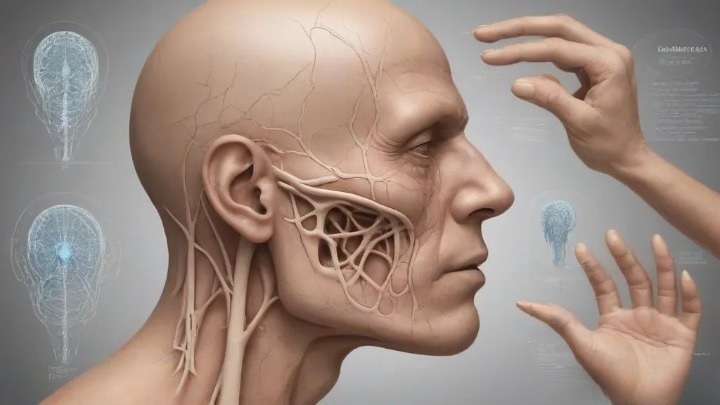Understanding Acromegaly: Causes, Symptoms, and Diagnosis | Comprehensive Guide-Acromegaly, although uncommon, can significantly impact an individual’s quality of life if left untreated. Understanding its causes, recognizing its symptoms, and seeking timely medical intervention are crucial steps toward effective management. Let’s explore the intricacies of acromegaly and shed light on its diagnosis and treatment option
Understanding Acromegaly: Causes, Symptoms, and Diagnosis | Comprehensive Guide

Summary
Acromegaly is a rare but serious condition caused by the overproduction of growth hormones, leading to enlarged bones and tissues. This comprehensive guide delves into the causes, symptoms, diagnosis, and treatments for acromegaly, providing valuable insights to empower individuals affected by this condition.
Causes
Acromegaly primarily stems from the overproduction of growth hormone, usually triggered by benign tumors in the pituitary gland. These tumors prompt excessive secretion of growth hormone, leading to characteristic physical changes in affected individuals. Additionally, ectopic tumors in other parts of the body can also contribute to heightened growth hormone levels.
Risk Factors
While anyone can develop acromegaly, certain factors may increase susceptibility. These include a family history of pituitary disorders, genetic predispositions, and certain medical conditions.
Symptoms:
The symptoms of acromegaly can vary in severity and manifestation but often include characteristic features such as enlarged facial features, hands, and feet, oily skin, muscle weakness, and fatigue. Other common symptoms encompass joint pain, impaired vision, and menstrual irregularities in women.
Diagnosis:
Diagnosing acromegaly typically involves a comprehensive approach, encompassing physical examinations, blood tests to measure growth hormone levels and insulin-like growth factor 1 (IGF-1) levels, urine tests, and imaging studies such as ultrasound and magnetic resonance imaging (MRI). These diagnostic modalities help healthcare professionals accurately assess the extent of the condition and devise appropriate treatment strategies.
Treatments:
Treatment for acromegaly aims to alleviate symptoms, reduce excess growth hormone levels, and mitigate complications. Commonly recommended approaches include medication to suppress hormone production, radiation therapy to shrink tumors, and in severe cases, surgical intervention to remove tumors pressing on the pituitary gland. Each treatment modality carries its own benefits and risks, and the choice depends on individual circumstances.
Complications:
Untreated acromegaly can lead to a host of complications, including cardiovascular issues, diabetes mellitus, vision impairment, and joint problems. Prompt diagnosis and intervention are crucial in preventing these potentially life-altering complications.
Prevention:
While acromegaly cannot always be prevented, raising awareness about its symptoms and risk factors can facilitate early detection and intervention. Regular medical check-ups and genetic counseling for individuals with a family history of pituitary disorders can also play a proactive role in prevention.
Questions to Ask Your Doctor:
- How is acromegaly diagnosed?
- What treatment options are available, and which would be most suitable for my condition?
- What are the potential complications associated with acromegaly, and how can they be mitigated?
- Are there any lifestyle modifications or dietary changes that can support my treatment plan?
Conclusion:
Acromegaly presents unique challenges, but with timely diagnosis and appropriate treatment, individuals can effectively manage the condition and improve their quality of life. By staying informed, proactive, and collaborating closely with healthcare providers, those affected by acromegaly can navigate their journey toward optimal health and well-being.
FAQs:
Q: Is acromegaly a common condition? A: No, acromegaly is rare, affecting approximately 3 to 4 individuals per million each year.
Q: Can acromegaly be cured? A: While there is no cure for acromegaly, treatment can help manage symptoms and prevent complications.
Q: What are the long-term effects of untreated acromegaly? A: Untreated acromegaly can lead to serious complications such as cardiovascular disease, diabetes, and vision problems.
Q: Are there any support groups for individuals with acromegaly? A: Yes, there are several online and in-person support groups and resources available for individuals living with acromegaly and their families.
Disclaimer-For informational purposes only. Consult a medical professional for advice.
ALSO READ-Acoustic Neuroma